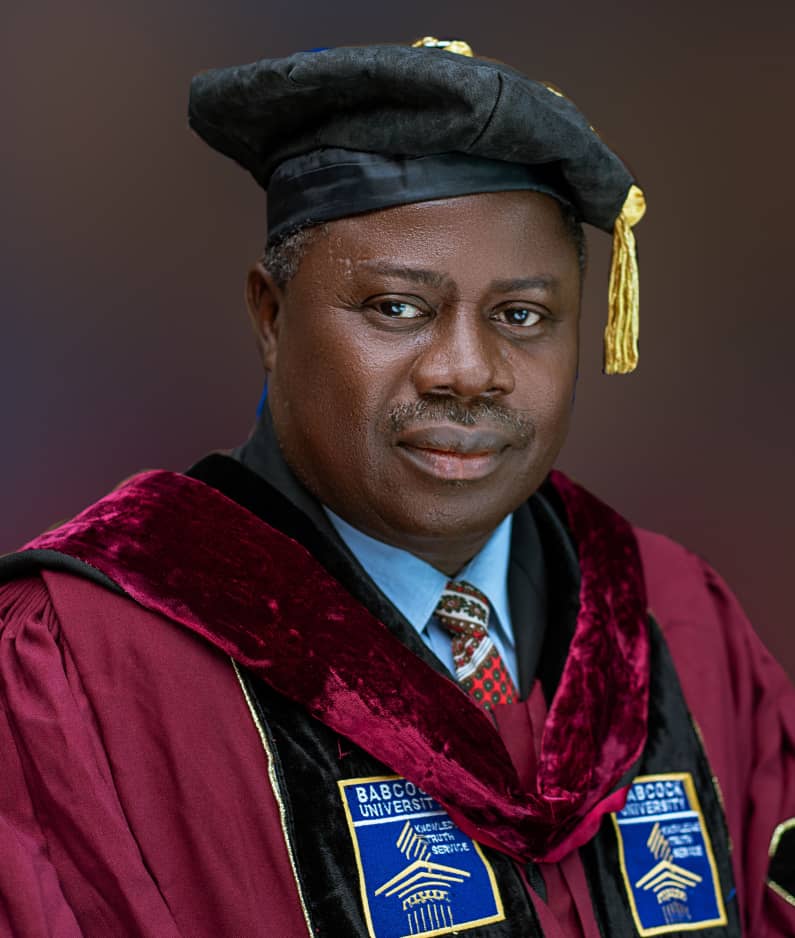***Seeks Citizen Education on Consequences of Corruption
Journalists and media organizations have been urged to sharpen their investigative skills to expose corruption and promote good governance in Nigeria.
This charge was made by Professor Tokunbo Adaja, a Professor of Journalism and Mass Communication, while delivering the 11th Inaugural Lecture of Joseph Ayo Babalola University (JABU), Ikeji-Arakeji, Osun State. The lecture took place on Thursday at the Oba Oladele Olashore Auditorium of the institution.
In his lecture titled “Power of Press and Press of Power: Bridging the Lacuna in the Quest for Good Governance in Nigeria”, Professor Adaja emphasized that the press wields immense power which, if not harnessed for societal transformation, will remain a mere theoretical construct.
Describing the media as a vital agent of change, Adaja said journalists have a responsibility to ensure accountability, transparency, and probity in governance. He stressed the importance of cultivating a culture of consistently reporting and monitoring government activities, including awarded contracts, to ensure adherence to specifications.
He urged the press to lead the quest for good governance by exposing all social, economic, and political misconduct by governments, agencies, and public officials, and by encouraging prosecutorial bodies to take appropriate action.
Adaja warned against the abdication of the press’s watchdog role over the executive, legislature, and judiciary. He urged media professionals to provide adequate coverage of these arms of government, highlight their excesses or misdeeds, and advocate for justice and accountability.
The professor also challenged the media to investigate individuals with questionable wealth and discourage the glorification of corrupt personalities. “People suspected to be living above their means, as well as sudden millionaires, should be investigated and made to disclose their sources of wealth,” he said.
Lamenting the low level of political participation in Nigeria, Adaja maintained that a sustainable democracy depends on an informed, rational, and active citizenry. To reverse the trend, he called on the media to intensify efforts in political mobilization, education, and sensitization to increase citizen engagement in the democratic process.
On the issue of corruption, Adaja acknowledged it as a global problem but noted that in Nigeria, its prevalence is closely linked to power dynamics and the enforcement of legal and moral standards. He decried the social, political, and economic distortions caused by corruption, which, he said, undermine legitimate efforts and limit individual potential.
Criticizing the methods employed by successive governments to combat corruption, he argued that the outcomes of various anti-corruption initiatives by government, NGOs, and international bodies have been largely unimpressive. “Nigerians are not inherently corrupt; the system has corrupted the citizens,” he said, adding that no anti-corruption drive can succeed without meaningful citizen involvement.
He therefore called on the media to take the lead in raising awareness and educating the public about the consequences of corruption, noting that such efforts would help shape public attitudes and discourage corrupt practices.
Adaja also emphasized the need for political accountability, urging journalists to profile candidates seeking public office and reveal their track records to help voters make informed decisions during elections.
Describing the press as an ideological instrument with the power to inspire cultural rebirth, he stressed the need for the media to revisit Nigeria’s lost cultural values, refine them, and reorient the mindset of the populace to embrace those ideals.
In his remarks, the Vice-Chancellor of JABU, Professor Olasebikan Fakolujo, described Professor Adaja as a distinguished scholar with over 50 publications in reputable local and international journals.
The event was attended by members of the university community, the Speaker of the Ondo State House of Assembly, traditional rulers, family members, friends, and well-wishers.


